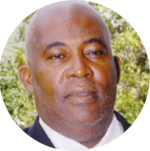
THE Health and Security Levy was passed in Parliament in July 2023 and implemented on October 2, 2023. When I say passed in parliament, I mean that the bill went through the House of Representatives, the Senate and was assented by the office of the Governor General, all of which make up the parliament of St. Lucia.
This article is intended to explain the Health and Security levy in a way that will enable all our citizens to understand.
The 2.5 percent Health and Citizen’s Security Levy (HCSL) is not a Value Added Tax (VAT). In fact, the levy will be collected separately from the VAT.
The Office of the Prime Minister (OPR) has indicated, very forcefully, that the Health and Security Levy is an investment in our community, our country and our people.
Government has emphasized that the Levy will be imposed on goods and services originating out of the state of St. Lucia. That is, goods manufactured in St. Lucia and services that are produced in St. Lucia will not have the HCSL attached to them.
It is very important to understand that the levy is intended to improve government’s financial ability to provide quality health care services to our people and to reinforce St. Lucia’s national security infrastructure for a safer and more secure country.
Now, let’s investigate the goods which come to St. Lucia from overseas. High up on the list are: Sugar, rice and flour which are referred to as staples. These are popular products which are used by families or households in St. Lucia. Health and Security Levy will not be paid on these items. In commerce we say that these items are zero rated. Several other food items and selected medicinal products will not attract the Health and Security Levy.
The government of St. Lucia is dedicated to improving the health and security of its people. Already the government has introduced some outstanding health programmes, such as the Maternal Health Care programme which will benefit all women in St. Lucia; the Castries Urban Polyclinic which would benefit everyone as it relates to Primary Health Care, Urgent Health Care and Secondary Health Care; and the 80 years plus Programme which is intended to benefit our super agers.
The Health and Security Levy is expected to bring in about $35 Million to the government treasury. This is additional revenue which will finance more health projects, including the well talked about Universal Health Care Programme, (UHC), and enable government to implement various security projects for the benefit of its people.
Part of the Health and Citizen Security Levy will be used for the maintenance of police stations around the island, for providing additional tools and equipment for law enforcement officers to fight crime which is already a menace in our society.
The levy, which will be charged on goods coming into the country will be collected by the Customs and Excise Department. The Inland Revenue Department (IRD), will collect the revenue on services coming into the island. It is also important to indicate that goods that did not attract VAT and those that are zero rated will not be subjected to the levy.
I have heard some people say that government has put a levy on charcoal. Let me explain that charcoal which is imported into St. Lucia will be subjected to the (HCSL). The government is fully aware that our native people produce a lot of charcoal sufficient to satisfy the local market. Therefore, government is intent on protecting the local charcoal market. The govern has not said do not import charcoal. It is now clear that if charcoal is imported, then it will attract the Health and Security Levy.
We now want to highlight the services which are imported and will attract the (HCSL).
A service in a system that supplies a public need such as transport, communications, utilities, banking, computer software development, engineering services, administration of justice, manufacturing, vending and so on.
Now let us look at each service separately. Let’s start with the vending service. Many citizens put up for sale to tourists and locals excellent crafted goods at the arcade and elsewhere. Those venders will be required to pay the levy to the Inland Revenue Department on that service.
Bankers provide numerous services to the public. Often times, one would see government tax on a transaction receipt. Well, the HCSL will be imposed on the banking sector.
Utility companies such as water and electricity are required to pay the levy.
Computer companies that send their staff out to provide repairs and other computer services are required to pay the (HSCL).
By now, many of us must be thinking of the administration of justice. Well after we have consulted a law firm for legal services, those services would attract the levy.
Other items in Schedule 2 of the Health and Services Levy Act are as follows:
Sale of motor vehicles; wireless telecommunications activities; Real Estate activities; Activities of collection agencies and credit bureaus; Transportation support services; General cleaning of buildings; Landscape care services; Accounting, book-keeping and auditing services; Gambling and betting activities.
Space does not allow me to highlight all the services in the Schedule which would attract the health and security level in St. Lucia.












3 years on and Gobat family still waiting for Justice!